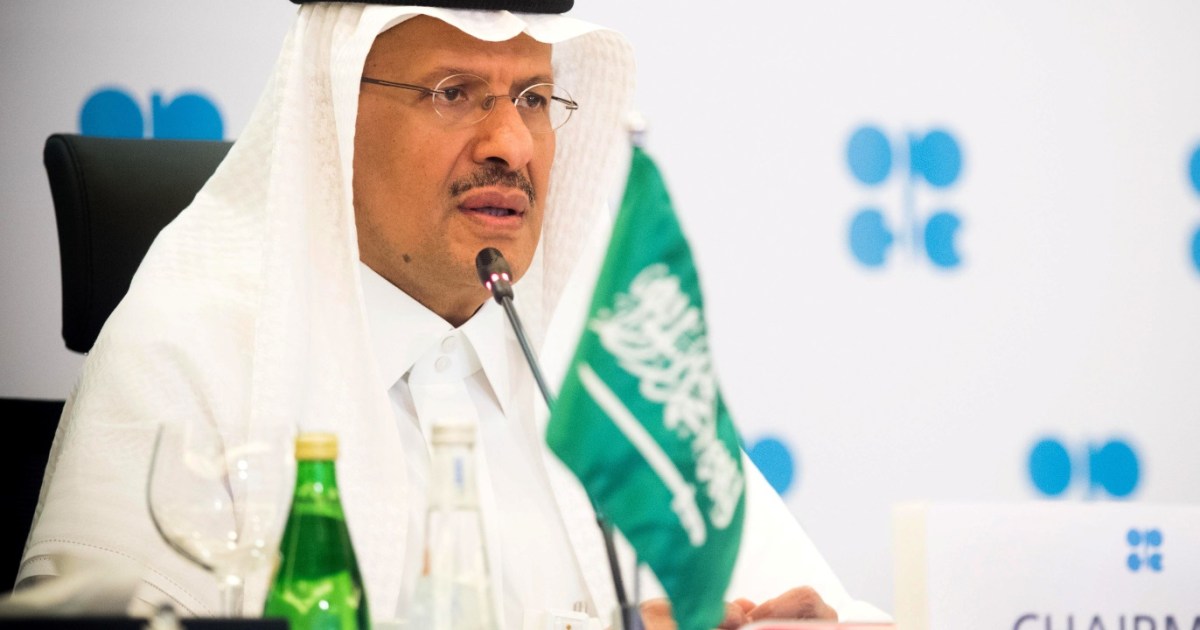Saudi Energy Minister Prince Abdulaziz bin Salman issued a stern warning to other oil-producing countries yesterday, Thursday, in order to abide by the agreed production cuts in light of the deterioration in crude oil prices and the uncertainty surrounding the global economy as a result of the Corona pandemic, stressing that doing so "is not an act of charity." .
And Bloomberg News said that Saudi Arabia has shown its determination to prevent OPEC Plus members from cheating in their production quotas, referring to its closest ally in the region, the United Arab Emirates, which revealed a document to the OPEC Plus committee that it pumped 182 thousand barrels above its production quota in August. the past.
The Organization of Petroleum Exporting Countries (OPEC), of which Saudi Arabia is the largest member in terms of production and exports, had agreed with a number of other oil states from outside the organization, led by Russia, within the framework of the so-called OPEC Plus grouping last April, to reduce Large production to stop the decline in crude oil prices due to lower demand as a result of closure measures and travel bans to contain the Corona pandemic in the world.
In a video conference with OPEC Plus countries, Abdel Aziz warned of "tactics of increasing production and not concealed commitment" to production quotas, and the minister criticized the non-compliant members, saying that they "harm our reputation and our credibility," without naming anyone.
"Attempts to circumvent the market will not succeed," he told ministers of other countries, stressing that countries that make "false promises" about their oil production will not defeat the group's goal of stabilizing and directing the market.
For his part, the UAE Minister of Energy, Suhail Al Mazrouei, pledged during a press briefing after the meeting that his country would reduce its production during the next October and November, in order to compensate for the excess quantities it pumped during last August.
His Iraqi counterpart, Ihsan Ismail, said that his country would reduce its production to the agreed limit by the end of this year.
3 OPEC Plus sources told Reuters that the committee pressured countries that were reluctant to implement cuts, such as Iraq, Nigeria and the UAE to reduce more production, to compensate for the excess production in the period from May to July, while extending the compensation period from September to the end of December.
For his part, Energy Analyst at German Commerzbank Eugene Feinberg confirmed that the Saudi minister's speech was directed towards other Gulf countries and OPEC Plus countries, which do not show a strong desire to adhere to the agreed production quotas.
"The discontent and the financial problems have become evident," Feinberg added in statements to the German news agency from Frankfurt, referring in particular to Kuwait, the United Arab Emirates and Iraq, which are driven by their financial needs not to adhere to production quotas.
Although a growing number of countries around the world gradually began to lift the lockdown measures, oil consumption has not returned to pre-shutdown levels, which in turn were relatively low.
Oil prices increased by more than 2% Thursday, as they turned upwards after OPEC and its allies said that the producer group will put pressure on countries that have not committed to production cuts and intend to hold an extraordinary meeting in October if oil markets deteriorate further.

